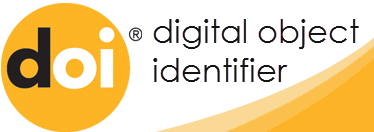ব্যাংক ও আর্থিক প্রতিষ্ঠানের যাকাত মূল্যায়ন ও হিসাবয়ন পদ্ধতি | Zakat Determination and Accounting Methods of Banks and Financial Instiutions
DOI:
https://doi.org/10.58666/iab.v19i74-75.252Keywords:
Bank, Companny, Shareholder, Representative, Legal person, ব্যাংক, কোম্পানী, শেয়ারহোল্ডার, প্রতিনিধি, আইনানুগ ব্যক্তিAbstract
Zakat ranks third among the five main pillars of Islam. As an economic act of worship, Allah, the Exalted, has made it obligatory on able Muslims. The role of Zakat in implementing the great goals of Shari’ah, such as the welfare of people, especially the establishment of economic justice in human society, is undeniable. At present, corporate bodies are recognized as legal persons. There exists divergent analysis, views and practices regarding the issue whether to pay zakat on the assets of banks and financial institutions as a legal person or what will be the determination process and accounting method. In this article various aspects and analysis of Sharia’h principles and widely practiced methods of accounting in zakat assessment of Islamic banks and financial institutions in accordance with the Shari’ah principles have been highlighted. This article has followed descriptive, analytical and review method. It is evident from this article that although there exist differences of opinion among jurists and scholars regarding the assessment process and accounting method of paying zakat on the assets possessed by banks and financial institutions, there is a consensus among them that zakat must be collected on the assets of these institutions to implement the goals and objectives of Shari’ah.
সারসংক্ষেপ : ইসলামের প্রধান পাঁচটি স্তম্ভের মধ্যে যাকাতের অবস্থান তৃতীয়। অর্থনৈতিক ইবাদত হিসেবে এটিকে মহান আল্লাহ সক্ষম মুসলমানদের ওপর বাধ্যতামূলক করেছেন। মানুষের কল্যাণ বিশেষ করে মানবসমাজে অর্থনৈতিক সুবিচার প্রতিষ্ঠার মতো শরী‘আহর মহান লক্ষ্য-উদ্দেশ্য বাস্তবায়নে যাকাতের ভূমিকা অনস্বীকার্য। বর্তমানে কর্পোরেট প্রতিষ্ঠানগুলো আইনানুগ ব্যক্তি (ষবমধষ ঢ়বৎংড়হ) হিসেবে স্বীকৃত। আইনানুগ ব্যক্তি হিসেবে ব্যাংক ও আর্থিক প্রতিষ্ঠানের সম্পদের ওপর যাকাত প্রদান করতে হবে কিনা, করলে তার নির্ধারণ প্রক্রিয়া ও হিসাবায়ন পদ্ধতি কী হবে-এ নিয়ে নানা বিশ্লেষণ ও অনুশীলন রয়েছে। বক্ষ্যমাণ প্রবন্ধে শরী‘আহর নীতিমালার অধীনে ইসলামী ব্যাংক ও আর্থিক প্রতিষ্ঠানের যাকাত মূল্যায়নে শারঈ নীতিমালা ও হিসাবায়নের বহুল অনুশীলিত পদ্ধতিগুলোর নানা দিক ও বিশ্লেষণ তুলে ধরা হয়েছে। বর্ণনা, বিশ্লেষণ ও পর্যালোচনামূলক পদ্ধতিতে রচিত এ প্রবন্ধ থেকে স্পষ্ট হয়েছে যে, ব্যাংক ও আর্থিক প্রতিষ্ঠানের কাছে যে সম্পদ রয়েছে তার ওপর যাকাত প্রদানের মূল্যায়ন প্রক্রিয়া ও হিসাবায়ন পদ্ধতি নিয়ে মুজতাহিদ ও ফকিহগণের মধ্যে মতপার্থক্য থাকলেও শরী‘আহর লক্ষ্য-উদ্দেশ্য বাস্তবায়নে এসব প্রতিষ্ঠানের সম্পদের ওপর যাকাত আদায় করতে হবে মর্মে তাদের মধ্যে ঐকমত্য রয়েছে।
References
Al Qurʼān Al Karīm
AAOIFI- Accounting and Auditing Organization for Islamic Financial Institutions. 2015. Shari’ah Standards. Manama, Bahrain.
- 2023. Shari’ah Standards (Bangla Version). Central Board For Islamic Banks Of Bangladesh
Abdus Samad, Muhammad, Muhammad Shamsul Huda and Muhammad Shamsudduha. 2017. Sharia Supervisory Comitteer Siddhanto. Dhaka: Shariah Secretariat, Islami Bank Bangladesh Limited.
Abū Dāwūd, Sulaimān Ibn Al Ashʻath Al Sijistānī. 1999. Sunan Abī Dāwūd. Al Riyāḍ: Dār Al Salām.
Abū Mukh, Ḥannān ʻAbd Al Raḥmān. 2007. Zakāt Al Shirkāt Fil Fiqh al Islāmī. ʻAmmān: Dār al Maʼmūn.
Al ʻAwdah, ʻAbd Al Qādir. ND. Al Tashrīʻi Al Jināyī Al Islāmī Muqāranan Bil Qānūn Al Waḍʻī. Bairūt: Dār Al Kātib Al ʻArabī
Al Bukhārī, Abū ʻAbd Allah Muḥammad Ibn Ismāʻīl. 2015. Ṣaḥīḥ Al Bukhārī. Al Riyāḍ: Dār Al Ḥaḍārah
Al Jaṣṣāṣ, Abū Bakr Aḥmad Ibn ʻAlī. 2010. Sharḥ Mukhtṣar Al Ṭaḥāwī. Bairūt: Dār Al Bashāir Al Islāmiyyah
Al Qarḍāwī, Yūsuf. 2013. Islamer Zakater Bidhan. Transleted By: Abdur Rahim. Dhaka: Khairun Prokashon
Al ʻUthmānī, Muḥammad Taqī. 2003. Islam O Adhunik Orthobyabostha. Translated By: Abu Saleh Muhammad Toha. Dhaka: Al Kawsar Prokasony
Bafadhal, Husin. 2021. “ZAKAT ON LEGAL ENTITIES: Towards Concept Perfection and Its Regulations in Indonesia” Al-Risalah 21(1) June: 13 - 32. DOI: 10.30631/al-risalah.v21i1.734
Bidhibaddah Islami Ain (Codified Islamic Law). 2008. Dhaka: Islamic Foundation Bangladesh.
Hassan, Syed Riazul. 1983. The Reconstruction of Legal Thought in Islam. Lahore: Iman Abu Hanifa Academy
Ibn ʻAfānah, Ḥusām Al Dīn Ibn Mūsā Ibn Muḥammad. 2007. Yasalūnaka ʻAn Al Zakah. Filasṭīn: Lajnah Zakāh Al Quds
Ibn Qudāmah, ʻAbd Allah Ibn Aḥmad Ibn Muḥammad. 1997. Al Mughnī. Al Riyāḍ: Dār ʻĀlam Al Kutub.
Ibn Rushd, Abū Al Walīd Muḥammad Ibn Aḥmad. 1995. Bidāyat Al Mujtahid Wa Nihāyat Al Muqtaṣid. Bairūt: Dār Ibn Ḥazm
Shaḥḥātah, Shawqī Ismāʻīl. 1970. Muḥāsabat Zakāt Al Māl: ʻIlman wa ʻAmalan. Al Qāhirah: Maktaba Al Anjulū Al Miṣriyyah
Siddiqi, Mohammad N. 1984. “مؤتمر الزكاة الأول (First Zakat Conference)” Journal of King Abdulaziz University: Islamic Economics, Vol. 2, No. 1, (pp. 163 - 168) . Available at SSRN: https://ssrn.com/abstract=3130600
Downloads
Published
Issue
Section
License
Copyright (c) 2023 Mohammad Rahmatullah Khandakar

This work is licensed under a Creative Commons Attribution 4.0 International License.





